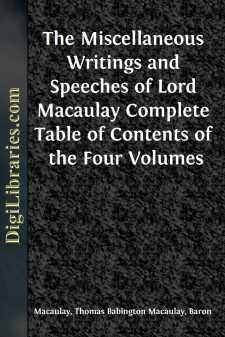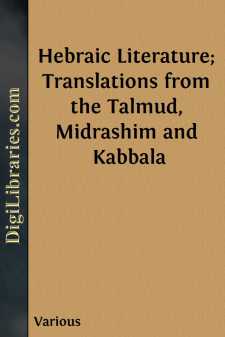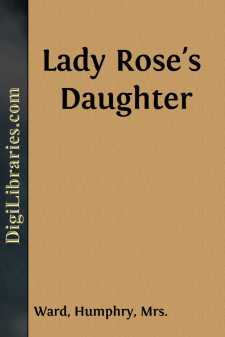Literary Collections
- American 84
- Ancient, Classical & Medieval 14
- Asian 1
- Australian & Oceanian 1
- Canadian 55
- Continental European 121
- English, Irish, Scottish, Welsh 179
- Essays 160
- General 24
- Letters 46
- Middle Eastern 1
Literary Collections Books
Sort by:
by:
Honore de Balzac
ALMAE SORORI In the year 1308 few houses were yet standing on the Island formed by the alluvium and sand deposited by the Seine above the Cite, behind the Church of Notre-Dame. The first man who was so bold as to build on this strand, then liable to frequent floods, was a constable of the watch of the City of Paris, who had been able to do some service to their Reverences the Chapter of the Cathedral;...
more...
PREFACE. HOME! How at the word, a crowd of pleasant thoughts awaken. What sun-bright images are pictured to the imagination. Yet, there is no home without its shadows as well as sunshine. Love makes the home-lights and selfishness the shadows. Ah! how dark the shadow at times—how faint and fleeting the sunshine. How often selfishness towers up to a giant height, barring out from our dwellings every...
more...
by:
Jenny Wren
CHAPTER I. ON LOVE."Love is of man's life a thing apart;'Tis woman's whole existence."So sings the poet, and so agrees the world. Humiliating as it is to make the confession, it is undeniably true. "Men and Dress are all women think about," cry the lords of creation in their unbounded vanity. And again, we must submit—and agree—to the truth of the accusation; at any...
more...
by:
Ralph Connor
CHAPTER I THE COWARD Spring had come. Despite the many wet and gusty days which April had thrust in rude challenge upon reluctant May, in the glory of the triumphant sun which flooded the concave blue of heaven and the myriad shaded green of earth, the whole world knew to-day, the whole world proclaimed that spring had come. The yearly miracle had been performed. The leaves of the maple trees lining...
more...
by:
Calvin Thomas
PREFACE This book is designed to accompany an introductory study of the history of German literature. It is assumed that the history itself will be learned, so far as necessary, either from lectures or from some other book devoted to the subject. As the selections were made, for the most part, while I was writing my own short history of German literature for the series published under the general...
more...
by:
Vernon Lee
MY DEAR MADAME BLANC, The first copy of this little book was, of course, to have been for Gabrielle Delzant. I am fulfilling her wish, I think, in giving it, instead, to you, who were her oldest friend; as I, alas! had time to be only her latest. She had read nearly all these essays; and, during those weeks of her illness which I spent last autumn in Gascony, she had made me rewrite several among them....
more...
PREFACE. Lord Macaulay always looked forward to a publication of his miscellaneous works, either by himself or by those who should represent him after his death. And latterly he expressly reserved, whenever the arrangements as to copyright made it necessary, the right of such publication. The collection which is now published comprehends some of the earliest and some of the latest works which he...
more...
by:
Various
SPECIAL INTRODUCTION Among the absurd notions as to what the Talmud was, given credence in the Middle Ages, one was that it was a man! The mediaeval priest or peasant was perhaps wiser than he knew. Almost, might we say, the Talmud was Man, for it is a record of the doings, the beliefs, the usages, the hopes, the sufferings, the patience, the humor, the mentality, and the morality of the Jewish people...
more...
THE BEGINNINGS OF TRACTARIANISM During the first years of my residence at Oriel, tho proud of my college, I was not quite at home there. I was very much alone, and I used often to take my daily walk by myself. I recollect once meeting Dr. Copleston, then Provost, with one of the Fellows. He turned round, and with the kind courteousness which sat so well on him, made me a bow and said, Nunquam minus...
more...
by:
Humphry Ward
I "Hullo! No!--Yes!--upon my soul, it is Jacob! Why, Delafield, my dear fellow, how are you?" So saying--on a February evening a good many years ago--an elderly gentleman in evening dress flung himself out of his cab, which had just stopped before a house in Bruton Street, and hastily went to meet a young man who was at the same moment stepping out of another hansom a little farther down the...
more...











